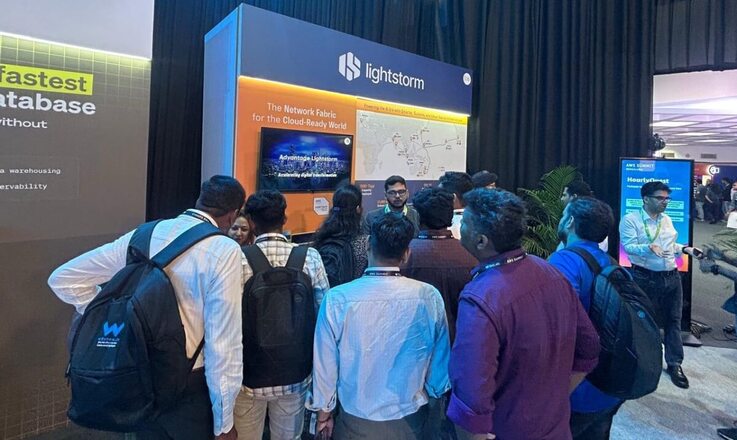
Singapore-based digital network infrastructure provider Lightstorm has successfully completed the integration of assets acquired from RTI Cables, significantly expanding its global subsea and terrestrial connectivity footprint. This strategic move positions Lightstorm as a key player in delivering high-performance data center networking solutions to hyperscalers, cloud providers, and multinational enterprises.
With over 75 Tbps of capacity and connectivity across more than 25 data centers, Lightstorm’s network now spans seven critical markets: Tokyo, Sydney, Brisbane, Guam, Hawaii, Los Angeles, and Singapore.
The newly integrated 21,000 kilometers of subsea cable systems form the backbone of a high-capacity, low-latency infrastructure, enabling seamless global communication for large organizations. The network boasts some of the industry’s fastest routes, including a Tokyo-to-Sydney connection that covers 9,700 kilometers in just 97 milliseconds, and an Australia-to-U.S. route via Guam and Hawaii covering 14,500 kilometers in 109 milliseconds. Additionally, Lightstorm now offers the only direct route from Singapore to the U.S. that bypasses the South China Sea, providing enhanced security and network resilience for global enterprises concerned about geopolitical risks.
Hyperscalers, Enterprises, OTT Platforms
Amajit Gupta, Group CEO and Managing Director at Lightstorm, emphasized the strategic significance of this development, stating, “With the integration of RTI Cables, we are not only expanding our network reach but also redefining connectivity standards for hyperscalers, enterprises, and OTT platforms seeking agile, intelligent, and high-capacity solutions. This positions us to support the next phase of digital transformation across AI, cloud, and enterprise sectors.”
Lightstorm now operates a combined terrestrial and subsea network capacity of 1,500 Tbps, connecting to over 250 data centers – including 120+ on-net locations – across 14 countries. This expanded infrastructure strengthens Lightstorm’s ability to meet rising global demand for low-latency, high-reliability connectivity, playing a pivotal role in the ongoing growth of cloud services, AI workloads, and digital business transformation worldwide.
Related Articles
1. Semiconductor Sales Surge 18% in 2024, Fueled by AI and Data Centers
Semiconductor sales reached $626 billion in 2024, driven by the rapid growth of AI, data centers, and a recovery in the memory market. This surge highlights the expanding demand for AI infrastructure components essential for cloud and edge computing environments. Read more.
2. AI Demand Pushes Server and Storage Revenues to $244B in 2024
Global demand for AI-powered computing infrastructure has driven server and storage component revenues to an all-time high of $244 billion in 2024, reflecting the critical role of data centers in supporting AI workloads and cloud services worldwide. Read more.
3. Accelsius Secures $24M for Its AI Data Center Cooling Solutions
Accelsius has raised $24 million to expand its liquid cooling technology that significantly reduces energy consumption in AI data centers. Their NeuCool system aims to cut energy use by 50% while increasing rack power density, addressing the growing thermal challenges posed by AI workloads. Read more.





